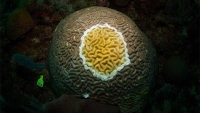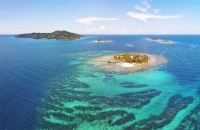A small piece of paradise on earth. Just a few small white sand beach islands lost in the Caribbean turquoise waters. This is Cayos Cochinos.
If you ever dreamed about deserted tropical islands surrounded by crystal clear waters with lush greenery and amazing white sand beaches, your dream can come true. Simply visit this archipelago off the coast of Honduras. It lays on the Meso-American Barrier Reef, which is the second largest coral reef system on earth and home to thousand of different kind of fish and corals.
A small piece of paradise on earth. Just a few small white sand beach islands lost in the Caribbean turquoise waters. This is Cayos Cochinos.
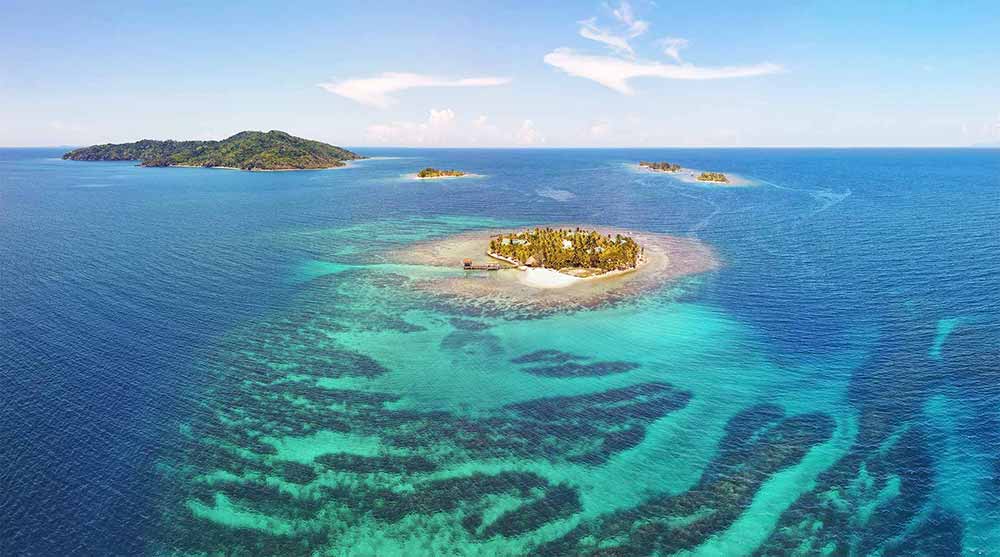
If you ever dreamed about deserted tropical islands surrounded by crystal clear waters with lush greenery and amazing white sand beaches, your dream can come true. Simply visit this archipelago off the coast of Honduras. It lays on the Meso-American Barrier Reef, which is the second largest coral reef system on earth and home to thousand of different kind of fish and corals.
The Archipelago
The Cayos Cochinos is a beautiful archipelago of 15 islands that belongs to the Bay Islands Department. It is situated 20 miles from Roatán and less than 19 miles from La Ceiba on the northern shore of Honduras and It consists of 2 main islands called Cayo Menor and Cayo Grande and 13 smaller ones, with a total land area measuring about 0.8 sq mi (less than 2 sq km).

Some of these islands are very small, basically just a few square feet of sand with a couple of palm trees surrounded by turquoise crystal clear water, a real tropical paradise.The Cayos Cochinos are inhabited only by the Graifuna people. They live in 2 small fishing villages, Chachauate and East End. They are mainly fishermen and they are the only ones allowed to fish in the Cayos Cochinos Marine Reserve. To the last census in 2011 they were 108.


The entire archipelago is a Marine Protected Area and is managed by Cayos Cochinos foundation with the head office and a scientific research station on Cayo Menor The coral reef here is part of the Meso-American Barrier Reef, the second largest coral reef system on earth. There are no roads, cars or scooters in Cayos Cochinos, the islands are only accessible by boat.
The government has taken serious actions to preserve this place and has made its water the healthiest and most pristine marine life habitat in the Bay Islands and we want to keep it like that. That's why we ask our clients to enjoy this wonderful place and at the same time to respect the Cayos Cochinos Archipelago and the Garifuna people that live on it.

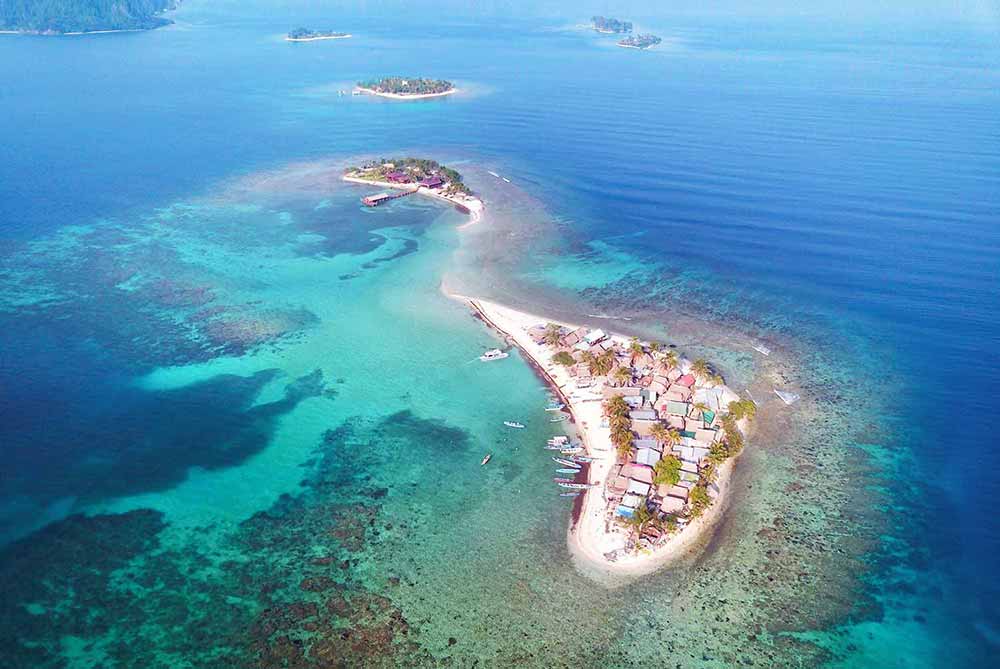
- A World Heritage Site -


Garifuna People
The Garifuna people are the only inhabitants of Cayos Cochinos. They are originally from St. Vincent and the Grenadines in the east side of the Caribbean sea and they are descendants of an unique and very fascinating mixed-race combination of Amerindian Arawak, Carib from Kalinago and African people.

Their first ancestors, the Amerindian Arawak and the Carib migrated from South America and settled down on St. Vincent way before the Europeans arrived, probably around 1200. Later on in 1635 two Spanish ships carrying hundreds of Nigerians shipwrecked nearby, the surviving slaves found help and hospitality on the island among the Carib-Arawak population adding the last contribution to the Garifuna ethnicity.

Since then they lived peacefully until the early 1700s when French showed interest in the islands, starting a war that the Garifuna who fought bravely for their freedom and independence, forcing the French to forging an alliance that lasted for decades. Unlikely when the British took over the French interests in the area they were not interested in a peaceful cooperation with the Garifuna giving start to the 1st Carib war in 1776 that lasted 7 years until 1783 when the British were beaten and forced to sign a peace treaty.
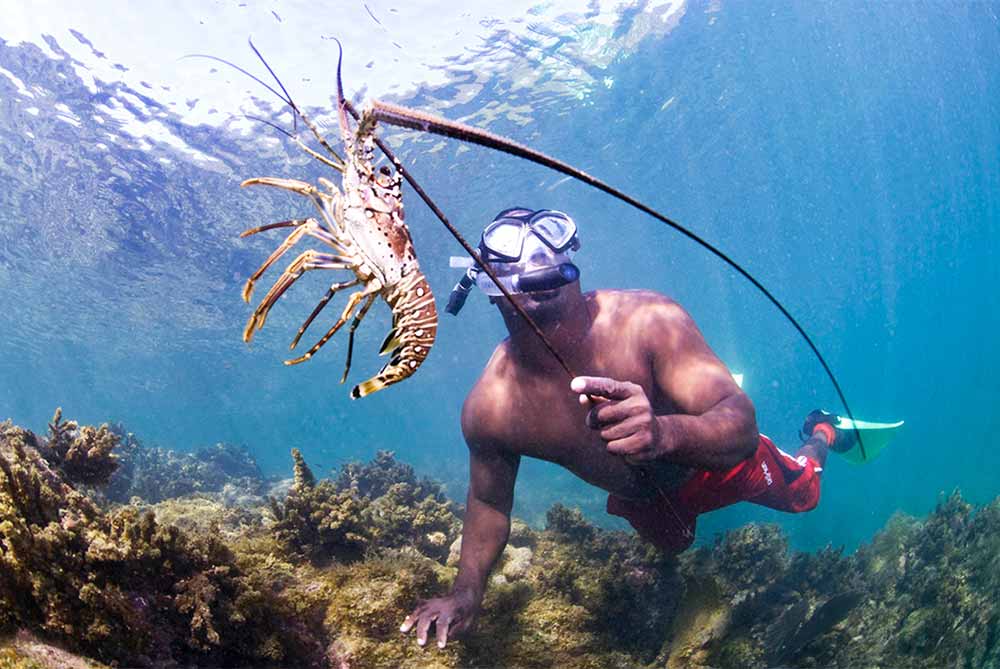
British broke the treaty 22 years later starting the 2nd Carib war, this time with more soldiers, army and better organized were able to defeat the Garifuna that very hardly finally surrendered in 1796. Many Garifuna were captured and exiled to a closer island where many of them died of malnutrition and disease.

A year later the approximately 2000 surviving Garifunas were sent by ship to Roatán. Nowadays over 800,000 are the descendants of the original Garifuna ethnic group. Some of them still live in Saint Vincent and the Grenadines but other communities are in Honduras, Guatemala, Mexico and Belize and a large group have moved to the United States. Garifuna people are very proud of their origins and history, they have kept their language, costumes and cultural traditions.
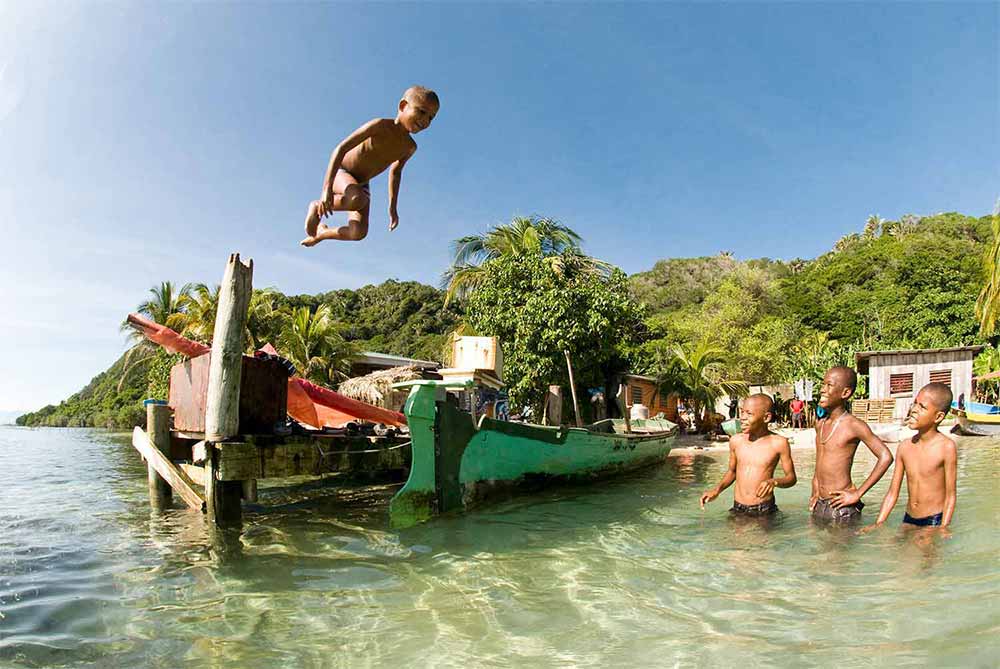
IN 2001, UNESCO DECLARED THE GARIFUNA CULTURE A “MASTERPIECE OF THE ORAL AND INTANGIBLE HERITAGE OF HUMANITY”, SAME FOR THE CAYOS COCHINOS ARCHIPELAGO DECLARED A WORLD HERITAGE SITE LATER IN 2015.



The Archipelago
The Cayos Cochinos is a beautiful archipelago of 15 islands that belongs to the Bay Islands Department. It is situated 20 miles from Roatán and less than 19 miles from La Ceiba on the northern shore of Honduras and It consists of 2 main islands called Cayo Menor and Cayo Grande and 13 smaller ones, with a total land area measuring about 0.8 sq mi (less than 2 sq km). Some of these islands are very small, basically just a few square feet of sand with a couple of palm trees surrounded by turquoise crystal clear water, a real tropical paradise.The Cayos Cochinos are inhabited only by the Graifuna people. They live in 2 small fishing villages, Chachauate and East End. They are mainly fishermen and they are the only ones allowed to fish in the Cayos Cochinos Marine Reserve. To the last census in 2011 they were 108.
The entire archipelago is a Marine Protected Area and is managed by Cayos Cochinos foundation with the head office and a scientific research station on Cayo Menor The coral reef here is part of the Meso-American Barrier Reef, the second largest coral reef system on earth. There are no roads, cars or scooters in Cayos Cochinos, the islands are only accessible by boat.
The government has taken serious actions to preserve this place and has made its water the healthiest and most pristine marine life habitat in the Bay Islands and we want to keep it like that. That's why we ask our clients to enjoy this wonderful place and at the same time to respect the Cayos Cochinos Archipelago and the Garifuna people that live on it.
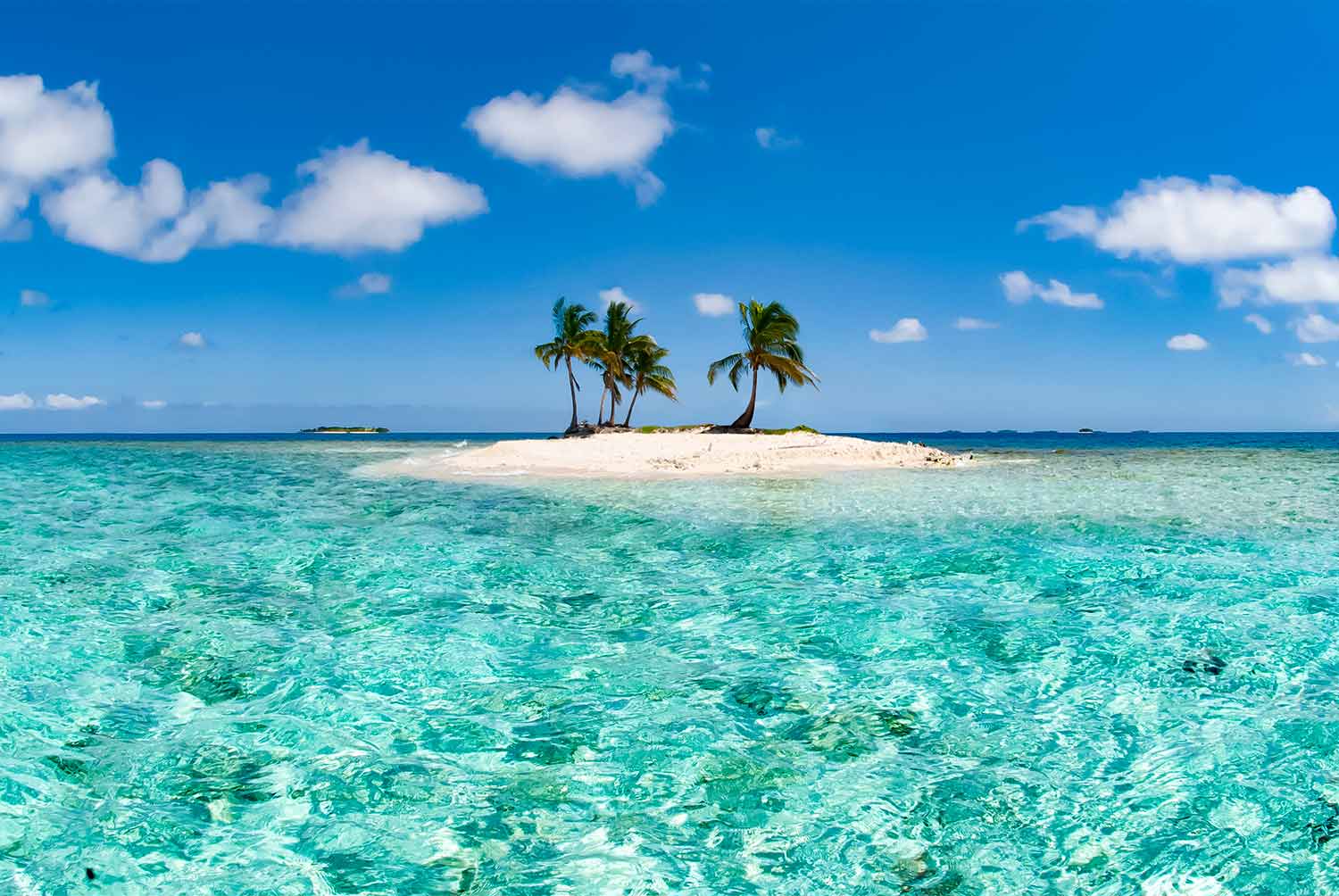


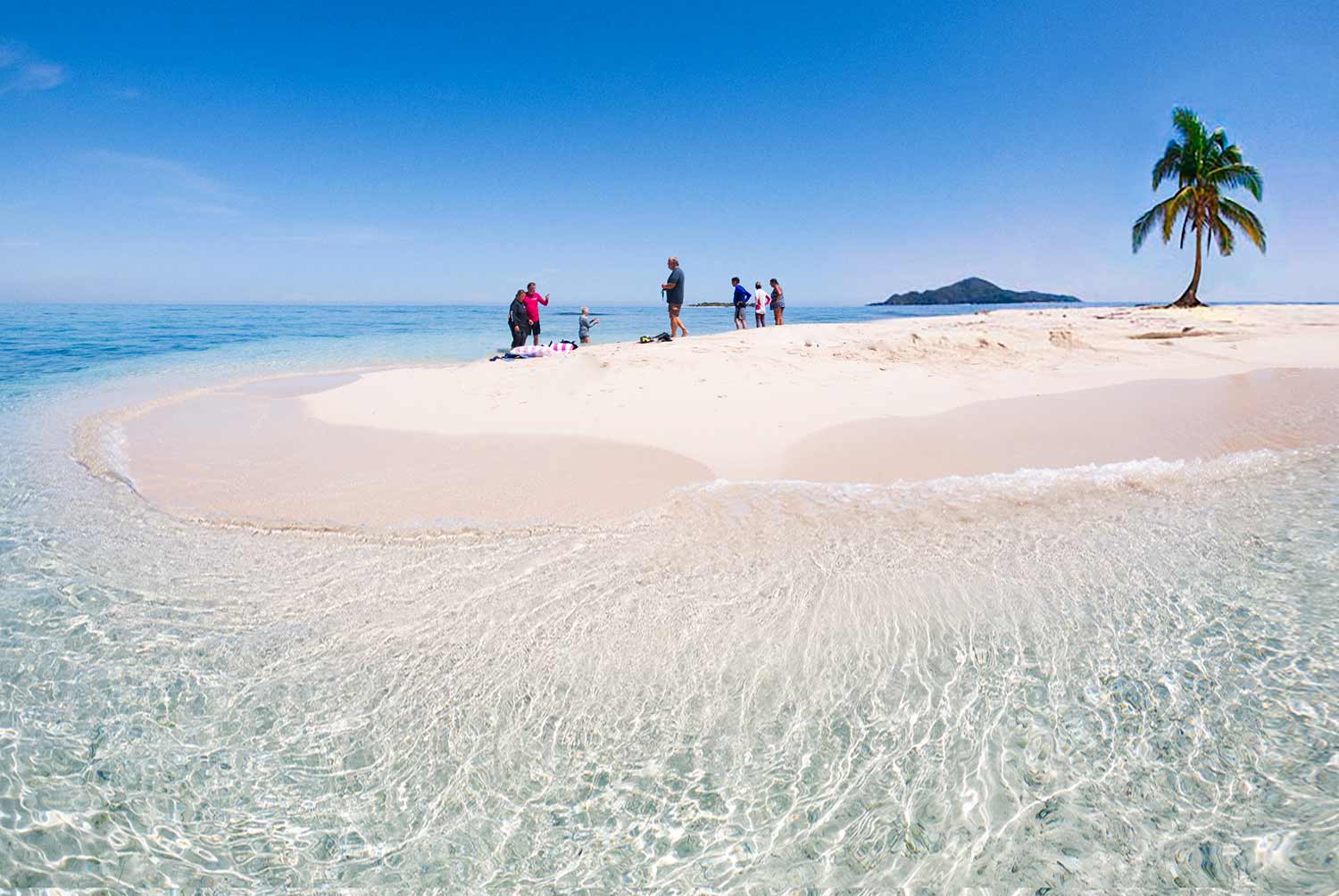
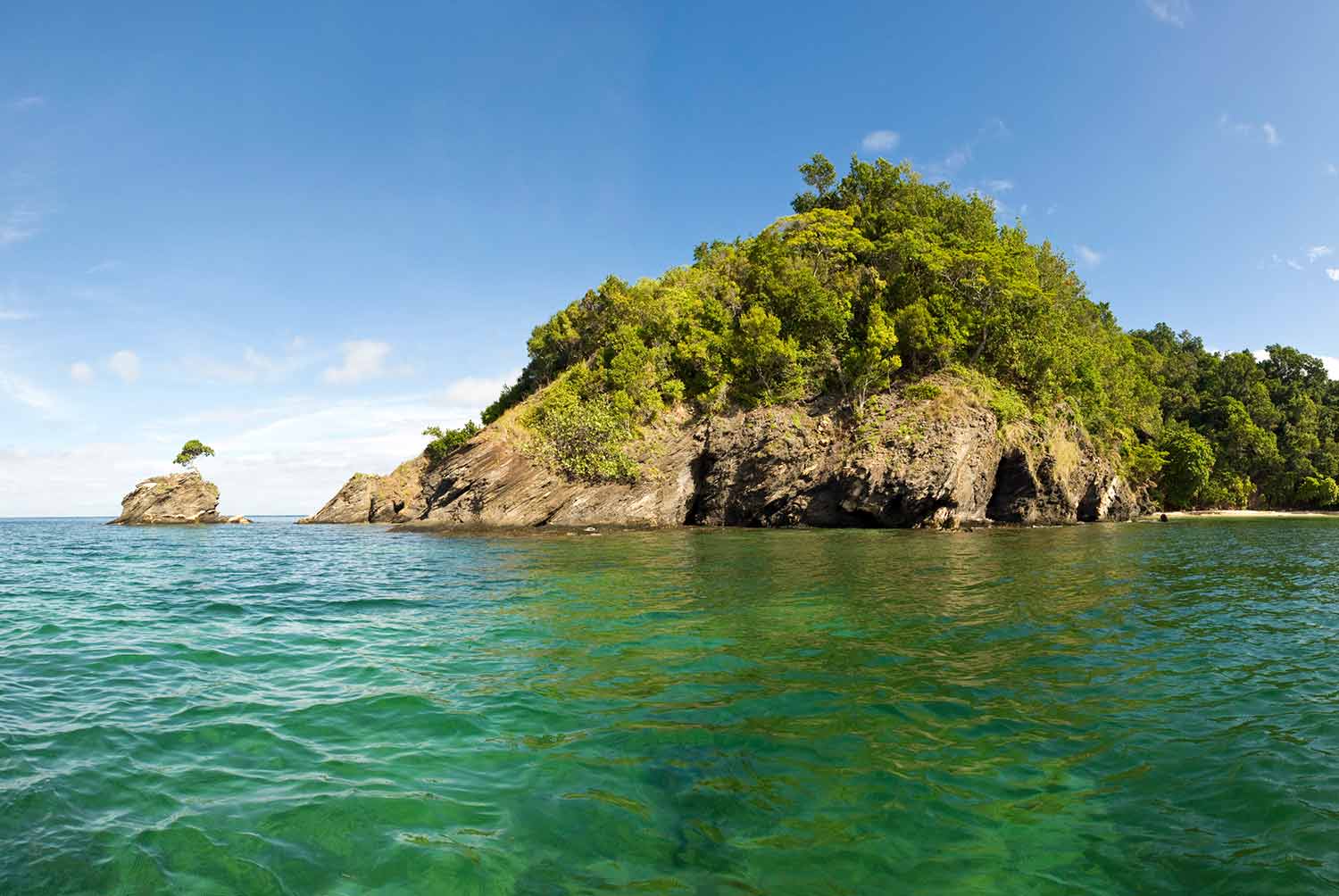

- A World Heritage Site -
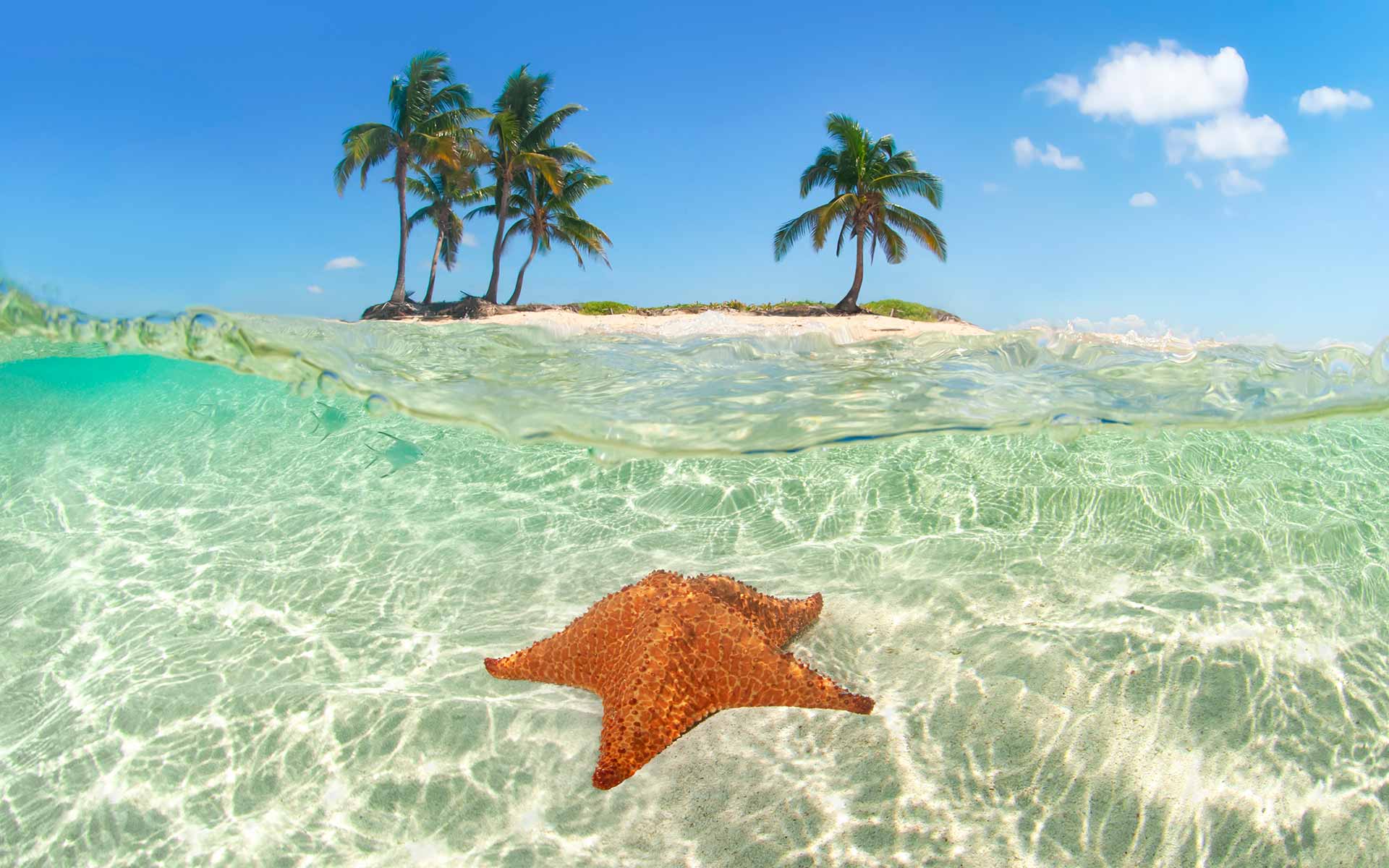
Garifuna People
The Garifuna people are the only inhabitants of Cayos Cochinos. They are originally from St. Vincent and the Grenadines in the east side of the Caribbean sea and they are descendants of an unique and very fascinating mixed-race combination of Amerindian Arawak, Carib from Kalinago and African people. Their first ancestors, the Amerindian Arawak and the Carib migrated from South America and settled down on St. Vincent way before the Europeans arrived, probably around 1200. Later on in 1635 two Spanish ships carrying hundreds of Nigerians shipwrecked nearby, the surviving slaves found help and hospitality on the island among the Carib-Arawak population adding the last contribution to the Garifuna ethnicity. Since then they lived peacefully until the early 1700s when French showed interest in the islands, starting a war that the Garifuna who fought bravely for their freedom and independence, forcing the French to forging an alliance that lasted for decades. Unlikely when the British took over the French interests in the area they were not interested in a peaceful cooperation with the Garifuna giving start to the 1st Carib war in 1776 that lasted 7 years until 1783 when the British were beaten and forced to sign a peace treaty. British broke the treaty 22 years later starting the 2nd Carib war, this time with more soldiers, army and better organized were able to defeat the Garifuna that very hardly finally surrendered in 1796. Many Garifuna were captured and exiled to a closer island where many of them died of malnutrition and disease. A year later the approximately 2000 surviving Garifunas were sent by ship to Roatán. Nowadays over 800,000 are the descendants of the original Garifuna ethnic group. Some of them still live in Saint Vincent and the Grenadines but other communities are in Honduras, Guatemala, Mexico and Belize and a large group have moved to the United States. Garifuna people are very proud of their origins and history, they have kept their language, costumes and cultural traditions.






IN 2001, UNESCO (THE UNITED NATIONS EDUCATIONAL, SCIENTIFIC AND CULTURAL ORGANIZATION) DECLARED THE GARIFUNA CULTURE A “MASTERPIECE OF THE ORAL AND INTANGIBLE HERITAGE OF HUMANITY”, SAME FOR THE CAYOS COCHINOS ARCHIPELAGO DECLARED A WORLD HERITAGE SITE LATER IN 2015.

Check out our All Inclusive Cayos Cochinos Tour


